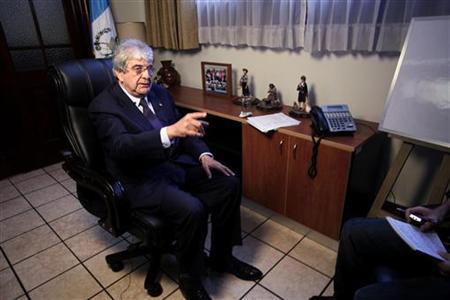美国总统奥巴马•贝拉克任命的一个调查委员会8月29日说,美国政府研究人员上世纪40年代在明知违反伦理道德的情况下,对危地马拉在押人员和精神病患者实施性病人体实验,至少致死83人。

无视人权
生物伦理问题研究委员会去年11月成立,定于今年12月公布危地马拉性病人体实验最终报告。
这一委员会迄今调查相关文件超过12.5万份。委员会发现,美国卫生与公众服务部下属国家卫生研究院研究人员在危地马拉监狱着手实验时,几乎没把实验对象当人对待,甚至没有告诉他们正接受一项危险实验。
为了研究测试青霉素能否用于性病防治,接近5500人接受诊断测试,超过1300人经性行为或人为“接种”方式接触淋病、梅毒等性病病毒。
生物伦理问题研究委员会成员史蒂芬•豪泽说,1946年至1948年间,1300名危地马拉人面临性病感染风险,但文件档案显示,仅不足700人接受某种程度治疗。
委员会负责人、宾夕法尼亚大学校长埃米•古特曼说,国家卫生研究院的这项人体实验研究是“医疗史上可耻一页”,调查将还受害者以公道,确保类似事件不再发生。
明知故犯
生物伦理问题研究委员会认为,国家卫生研究院研究人员故意让实验对象感染性病,操作实验时无视医疗伦理道德,明知故犯。
研究人员把已经感染性病的妓女带入危地马拉监狱,令在押人员接触病毒。另外,他们还故意弄破一些在押人员或精神病患者的生殖器官、胳膊和脸上肌肤,再让受伤肌肤接触性病病毒。当实验对象感染梅毒等性病后,研究人员对他们施以青霉素并观察效果。
这些实验对象并不知道,他们已经沦为“小白鼠”。梅毒等疾病如果不及时接受治疗,可能导致患者身体器官严重损伤、瘫痪、失明甚至死亡。
当年从事这一研究的美国医生约翰•卡特勒在一份文件中指出,他为一名精神病女患者接种梅毒后,女子濒临死亡,但出于研究考虑,他继续为女子接种性病病毒,后者最终感染重病身亡。
委员会负责人古特曼29日说:“这不是发生在危地马拉的一起意外事件。在参与其中的一些人看来,我们不能在自己的国家这样做。”
她说,大量证据显示,研究人员企图掩盖事实,他们的所作所为缺少对人权的基本尊重,更谈不上符合医疗研究道德。
黑暗历史
美国韦尔斯利学院医学史学家苏珊•里维尔比2009年梳理已故医生卡特勒资料时,发现这段危地马拉监狱内的惊人历史。事件曝光后引发舆论广泛关注,总统贝拉克•奥巴马2010年10月致电危地马拉总统阿尔瓦罗•科洛姆,表达歉意;国务卿希拉里•克林顿直言,政府为医学工作者当年行径“感到愤慨”。
危地马拉先前谴责,性病人体实验涉嫌反人类罪,危地马拉政府将考虑向设在荷兰海牙的国际刑事法院提起诉讼。危方就此展开调查,一些实验受害者和家属正起诉美国政府。
里维尔比说,参与实验的美国研究人员认为,他们的出发点是应对威胁美国人、尤其是美国士兵的一大疾病,战胜性病是他们的关注重心所在。
危地马拉秘密人体实验事件唤起的还有有关美国人的另一段可怕记忆,即“塔斯基吉梅毒实验”。
自1932年起,美国公共卫生部门以免费治疗梅毒为名,把亚拉巴马州数百名非洲裔男子当作实验对象,秘密研究梅毒对人体的危害,而当事人实际上未得到任何治疗。公共卫生部门对实验对象隐瞒真相长达40年,使大批受害人及其亲属付出了健康乃至生命的代价。这一研究项目直到1972年经媒体曝光才终止。
生物探索推荐:
生物探索推荐英文文章阅读:
U.S. researchers broke rules in Guatemala syphilis study
U.S. government researchers must have known they were violating ethical standards by deliberately infecting Guatemalan prison inmates and mental patients with syphilis for an experiment in the 1940s, according to a presidential commission.
The U.S.-funded research in Guatemala did not treat participants as human beings, failing to even inform them they were taking part in research, as was the case for a similar study in the United States, the commission said on Monday.
The United States apologized last year for the experiment, which was meant to test the drug penicillin, after it was uncovered decades later by a college professor.
President Barack Obama's Commission for the Study of Bioethical Issues investigated the syphilis experiment and discussed its key findings in Washington on Monday. A final report is due in December.
"They should shock the conscience not in spite of their medical context, but precisely because of it," said the commission's chairwoman Amy Gutmann, president of the University of Pennsylvania.
"The people who were in the know, did want to keep it secret because if it would become more widely known, it would become the subject of public criticism," she said.
The commission's conclusions have consequences for U.S. diplomacy and will impact the ethical discussion surrounding how new drugs are tested on patients, as manufacturers increasingly conduct clinical trials abroad.
Guatemala condemned the tests conducted by the U.S. Public Health Service (PHS) as a crime against humanity and said last year it would consider taking the case to an international court. It is conducting its own investigation. Victims of the study are suing the U.S. government.
In a November 2010 article in the Journal of the American Medical Association, directors of the National Institutes of Health and the Centers for Disease Control and Prevention rejected the possibility that such unethical practices could happen now. But the bioethics community is less convinced.
"Too often people become absorbed with the merit of a scientific question and can lose sight of the ethics in answering it," said Mary Faith Marshall, a professor at the University of Minnesota's Center for Bioethics. "Possibly, if you broaden the scope... to private industry, you'll see things that are even worse."
WAR AGAINST DISEASE
PHS officer Dr. John Cutler, a rather junior scientist at the time, led the Guatemala research from 1946 to 1948 under a grant from the NIH to the Pan American Sanitary Bureau and in collaboration with several Guatemalan agencies.
The commission's investigators said the study of sexually transmitted diseases such as syphilis was an important scientific goal at the time, but they found no reasonable excuse for the way in which the study was conducted, noting that it demonstrated "institutional failure."
The fact that the study was done shortly after the end of World War II, with widespread reporting on the use of prisoners and concentration camp inmates for human experiments should have made the researchers aware of the breach of standards, commission members said.
The investigators plowed through thousands of pages of archives to find that researchers in Guatemala deceived the participants who were members of especially vulnerable groups, kept poor notes, did not try hard to protect the subjects from risks and conducted experiments in illogical order.
"It was bad science. Regardless of the ethical issues ... from a purely scientific standpoint, I found this body of science bereft of any point," said commission member Dr. Nelson Michael of the Walter Reed Army Institute of Research.
Some 1,300 people were infected with venereal disease, more than half of them with syphilis. They included inmates exposed to infected prostitutes brought into jails and male and female patients in a mental hospital. Some subjects had bacteria poured on scrapes made on their genitals, arms or faces.
The patients were given antibiotic penicillin to test its ability to cure or prevent syphilis, an infection that can cause genital sores and rashes and, if left untreated, damage internal organs and cause paralysis, blindness or death.
In one example of archived records cited at the meeting, Dr. Cutler noted that one of the mentally ill women he had infected with syphilis appeared to be dying. Still, the woman remained a study subject and was further infected with STDs before she developed grueling side effects and died.
"They thought, 'we're in a war against disease and in war soldiers die'... Those who are on the cutting edge of the science are the ones that can easily fall," said Wellesley College professor Susan Reverby, whose research uncovered the records of the Guatemalan experiment.
"It's too easy to say, 'Oh, we'd never do anything like that," she told Reuters. "We really need to think about what we're doing now that's going to look horrible in 20 years."
Reverby uncovered the Guatemala archives after years of research into a medical study in Tuskegee, Alabama where hundreds of black American men were deliberately left untreated for syphilis. The experiment lasted 40 years until 1972.
Dr. Cutler, who went on to take part in the Tuskegee study, also participated in a 1943 gonorrhea experiment in Terre Haute, Indiana. There, prison inmates were deliberately infected with the STD, but were informed of the study and asked to give consent. Until his death in 2003, Cutler remained unapologetic about his research.
Guatemalan Vice President Dr. Rafael Espada planned to speak at Monday's event, but canceled those plans because of Hurricane Irene that hit the U.S. east coast over the weekend.







